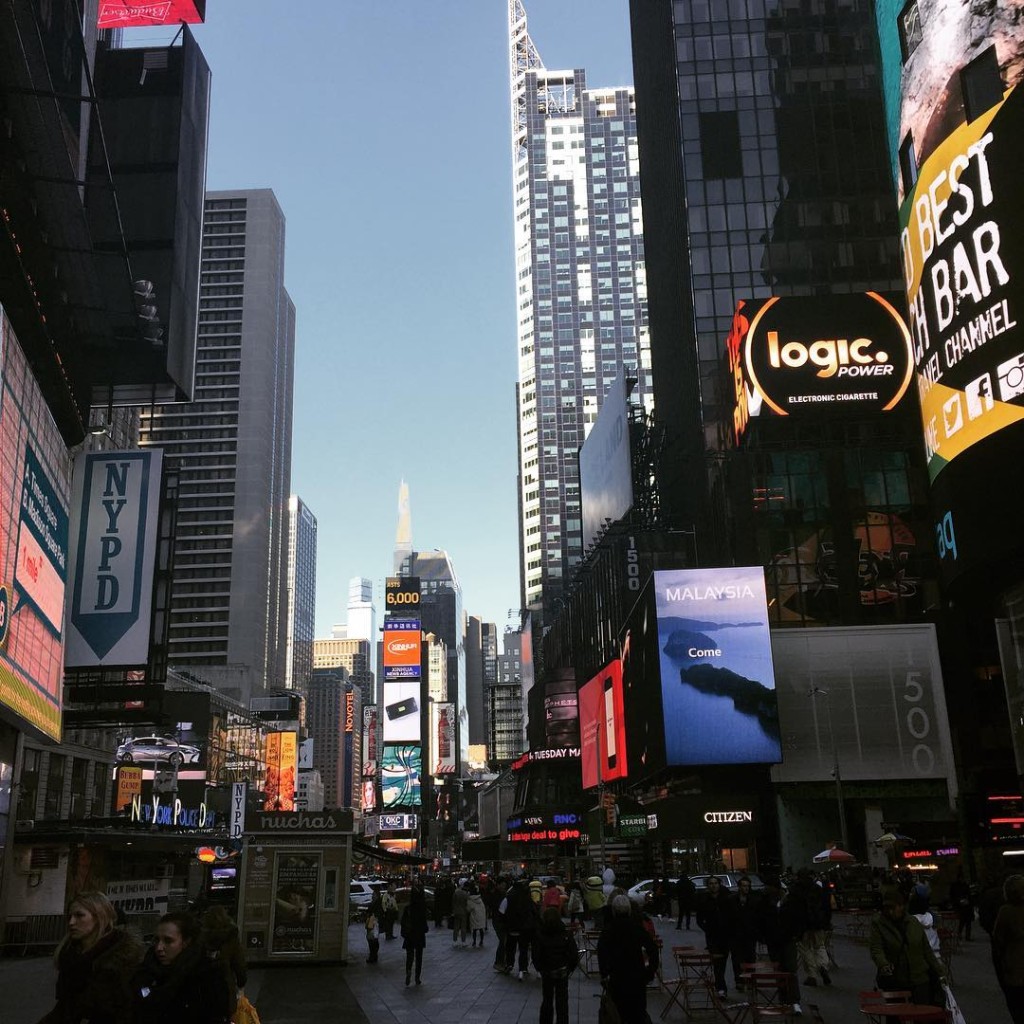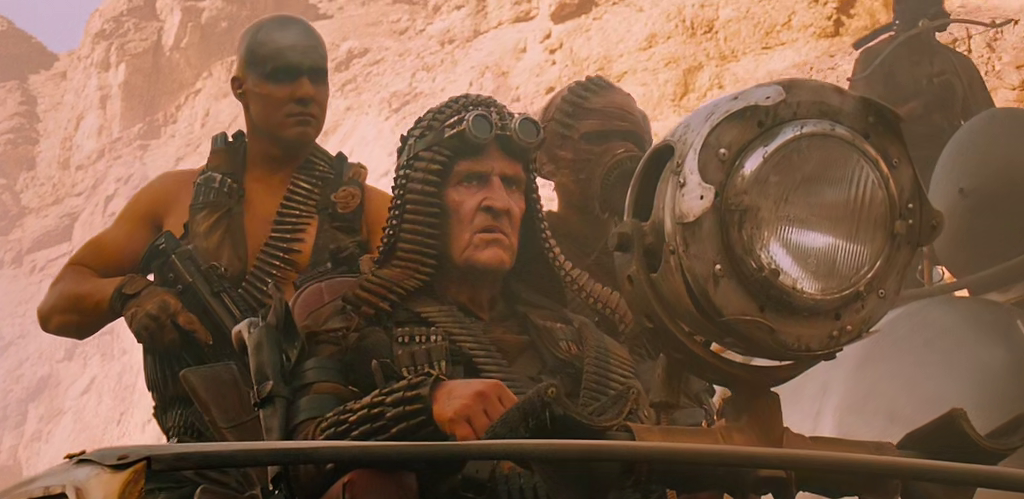
Yesterday I spent the afternoon casually strolling around New York City.
That sounds like a brag, but there are a few factors to consider. Factor the first: “casually strolling” is a euphemism for “this place is so expensive, walking around and being in awe at the scale of it is the most economical option available to me.” Factor 2: I’m alone in a strange city, without my family, my friends, or any pressing purpose to distract me from the fact that I’m half a PLANET away from the people and things I hold dear. Factor 3: The fact of my being in New York City is exciting to me, it’s an interesting place. So much to see and do, so many little observations to make about the structure of it, its culture and people, and the experiences I’m having. But every time I post about them I’m acutely aware of the privilege inherent in my being here.
There are a lot of people at home that would dearly love to have half a day to simply wander around New York City, without needing to rush home to the kids, get back from their lunch break, or get on with the housework. For those people, my photos and anecdotes are a series of barbs pointedly highlighting the fact that they’re unlikely to have the opportunity to experience the same. I feel as though I’m rubbing their noses in it with every photo I post.
Then, there are those for whom photos and anecdotes about foreign places are hugely inspiring. I have a friend that specifically asks for photos of other cities to help fuel their artistic endeavours. Some are desperate to soak up as much as possible about other people’s travel in order to fuel their own future travel plans. Others like to step vicariously through little windows into parts of the world they may never get a chance to see for themselves.

And then there’s my own motivations: I’m lonely, and sharing these experiences with people helps me to see them as real, somehow. Every otiose Like and Reaction gives the associated experience some semblance of legitimacy, inching me closer to actually believing that I’m here and this is really happening. And, they give me a connection to home.
So, I’m torn. I want to share my photos and stories because it helps some of my friends, but I don’t want to share them for the sake of those friends that find them disheartening. Let alone the fact that sharing these experiences has actually helped me to get over what I suspect was perhaps my first ever bout of actual for-reals anxiety.
I arrived at my hotel in NYC on Saturday at about 6pm. I had been on planes or in airports for more than 24 hours by that point, and was desperate for sleep, and food that didn’t come microwaved in a rectangular plastic container. I messaged Austin to get some suggestions for nearby places to eat, and despite a thoroughly tantalising and proximate response, I opted to get (what turned out to be just powerfully average) room service. I did this because the very thought of interacting with anyone in person at that time was more than I could bear.
I’m generally fairly outgoing and sociable. Sure, I get nervous and awkward around people I don’t know sometimes, but for the most part I’m okay with meeting people and doing the small-talk thing, but this time it was all just too much. I was here, in New York City, looking out at the incredible architecture and vibrancy of the place, and yet I couldn’t muster even an ounce of enthusiasm.
This feeling was alien to me. I was in New York! But Amy wasn’t. There was so much to go do and see! But no-one to share it with. I wanted to do everything but it’s expensive and it feels wasteful to spend money on experiences I can’t share with others.
On Sunday morning I arose, showered, and went downstairs for the complimentary “continental breakfast” included in my hotel costs. This consisted of bagels, doughnuts, pastries, glazed doughnuts, and two types of terrible coffee. I had a bagel, because bagels are great, and retreated to my room. The day was mine to do with as I wished, but I felt trapped by my dumb brain. The constant pressure to fill my day with excitement was mirrored by the pressure of having a lot of work still left to get done, and the fact that I felt so out of place and alone. I decided to get some work done to alleviate that pressure somewhat. I worked away for a couple of hours, at which point my caffeine addiction proved a boon.

My work was slowing down as my jet lag and lack of caffeine got the better of me, and I was forced to investigate my options. As luck would have it, there was a Stumptown less than a block from my hotel. My desire for good coffee, coffee that reminded me of home, was what eventually drove me out of my sullen, anxious stupor and out into the wintery New York morning. With a familiar espresso-based beverage in hand, rather than the standard drip filtered coffee available in most of the country, I ventured out into the city to see what I could see.
I walked for 18 blocks, just marvelling at the simple fact of being there. I watched the interactions of passers-by, drank in the salty-savoury smell of hotdog stands, listened to the detached and practiced pleas of the homeless, and pondered how so many desperate people were making ends meet in such an expensive city. The place is just lousy with knock-off electronics stores and the like, awash in the neon shadow of grotesque lightshows advertising businesses worth innumerable orders of magnitude more. Skyscrapers full of men in suits, towering over the people dressed in layers, sleeping on sewer grates for warmth. The unflappable optimism of Broadway musical theatre, contrasted against the desperate men and women bussing tables waiting for their big break on the stage.
I had an hour to kill before going to see Avenue Q in an off-Broadway theatre in Hell’s Kitchen, so I sat down for a bite to eat in a small café next door. I was desperate for conversation after a day alone with my thoughts, and got to talking to the gentleman behind the bar. We compared countries, customs, and experiences, and eventually got to talking about tipping. I was confused as to how it worked when using a credit card to pay. During his explanation, he admitted that he earned $5 per hour for his work. Five dollars. Per hour. Now, this could have been a ploy to engender a larger tip from me, but nevertheless it got me thinking again about privilege. Here I was, drinking a martini, and about to go and throw more than he would earn in 10 working hours at two hours of entertainment.

New York City is a strange place, full of large and small dichotomies that speak fairly directly to the nature of western society. The small slice of it I’ve seen is full of beauty and ingenuity, decrepitude and destitution. It embodies the idea of “the land of opportunity” that so many films and books have portrayed, in that by simply standing in place and turning full circle, you can observe people living their lives at the highest of highs and the lowest of lows. I feel and am privileged to have had a chance to visit, and feel thankful that my home is nothing like it. But equally, I know I’ll be sad to have left. What a strange place.
